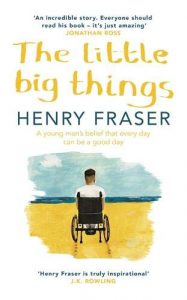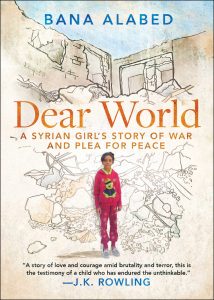The letter was written on thin, pale blue paper. The handwriting was neat and rounded. My brand-new German pen friend, Hanna, introduced herself in excellent English. Our schools had decided that Hanna and I would be a good fit as pen pals because we were both, not to put too fine a point on it, swots. In a matter of months, I’d be going to stay with her Stuttgart-based family for a week, and shortly after that, she’d come and stay on the Welsh border, with me. I was 13. The whole thing was thrilling.
Her house was warm, spotless and deliciously different. I remember ornamental candles, and rugs on a tiled floor, the furniture sleek and well-designed, and a shining upright piano in the corner, which Hanna, of course, played very well. On arrival, Hanna’s mother asked me what I wanted for breakfast, and when I didn’t immediately answer, she began listing all the foodstuffs she had available. Around about item six or seven, I recognised the German for cake, so I said, “Cake, please.”
Hanna’s mother was a magnificent cook. I particularly remember the clear soup with dumplings and the sausage with lentils, and every morning of my visit, presumably because she thought that’s what I was used to, she gave me cake for breakfast. It was glorious.
I kept in touch with Hanna for years, and when I was 15, the family invited me, with incredible generosity, to accompany them on a month-long trip to Italy. So, it was with Hanna and her family that I first saw the Mediterranean and first tasted shellfish.
I came home from Italy thirsty for more European adventures. I got myself a French pen pal called Adele, with whom in due course I went to stay in Brittany. There I watched her mother make crêpes, the region’s speciality, on the bilig, a large, circular griddle: they were the most delicious things I’d ever eaten, even including the Italian lobster. When out of sight of adults, I took advantage of the cheapness of French cigarettes and practised my nascent smoking habit, trying really hard to like Gitanes, and almost succeeding.
When I turned 16, my best friend and I cooked up the idea of going backpacking in Austria for a couple of weeks. Looking back, I do slightly wonder what our parents were thinking, letting us go: two schoolgirls with a smattering of German heading off on a coach with no fixed plans and no accommodation booked. We emerged from the experience unscathed: we successfully read the foreign train timetables, always managed to find accommodation, swam in ice-cold mountain lakes under brilliant sunlight and travelled from town to town as the fancy took us.
As I grew older, my determination to cross the Channel, even if alone or with insufficient funds, grew. If you had an Interrail ticket, surely one of the best inventions of all time, you could simply catch another train if you couldn’t find a room, or else doze in the station until the next one arrived. I took off alone at 19 to wander around France, a jaunt that ended abruptly with the theft of my wallet.
However, I was soon back again, because I spent a year in Paris as part of my French degree. My mother, a quiet Francophile with a half-French father, was delighted to visit me there; my father, possibly less so, given my perennially unsuccessful pleas to waiters to understand that bien cuit in his case meant there must be no pink at all in the middle of the steak.
I was 25 when my mother died, at which point I stopped pretending I wanted any kind of office job. Now I did what came most naturally: grabbed the dog-eared manuscript of the children’s book I’d been writing for a few months and took off across the Channel again. Disorientated with grief, I’d chosen one of the three teaching jobs offered to me almost at random. It was in Portugal, a country I didn’t know, and where I couldn’t speak a word of the language.
Teaching English abroad is a perfectly respectable profession, but nobody who has done it can deny that it attracts its fair share of misfits and runaways. I was both. Nevertheless, I fell in love with Porto and I love it still. I was enchanted by fado, the melancholy folk music that reflects the Portuguese themselves, who in my experience had a quietness and gentleness unique among Latin peoples I’d encountered so far. The city’s spectacular bridges, its vertiginous riverbanks, steep with ancient buildings, the old port houses, the wide squares: I was entranced by them all.
We all have shining memories of our youth, made poignant because they’re freighted with knowledge of what happened later to companions, and what lay ahead for ourselves. Back then we were allowed to roam freely across Europe in a way that shaped and enriched us, while benefiting from the longest uninterrupted spell of peace this continent has ever known. Lifelong friendships, love affairs and marriages could never have happened. Several children of my acquaintance, including my own eldest daughter, wouldn’t have been born without the frictionless travel the EU gave us.
At the time of writing, it’s uncertain whether the next generation will enjoy the freedoms we had. Those of us who know exactly how deep a loss that is, are experiencing a vicarious sense of bereavement, on top of our own dismay at the threatened rupture of old ties.
I think again of my teenage pen friend Hanna, as I reach for a quotation by Voltaire. She rarely let me get away with anything, so she’d probably have accused me of choosing a French philosopher in a spirit of pure provocation.
Well, Hanna was right about many things, but on this she’d be wrong. The truth is that I’m thinking of her now because she was my first friend from continental Europe, and because the words of Voltaire that hold so much meaning for me now are these: “L’amitié est la patrie.” “Where there is friendship, there is our homeland.” And Hanna, I really don’t want to lose my homeland.
Previous writing: « Letter to Australian production of Harry Potter and the Cursed Child
Next writing: Foreword: Finding the Way Home »

